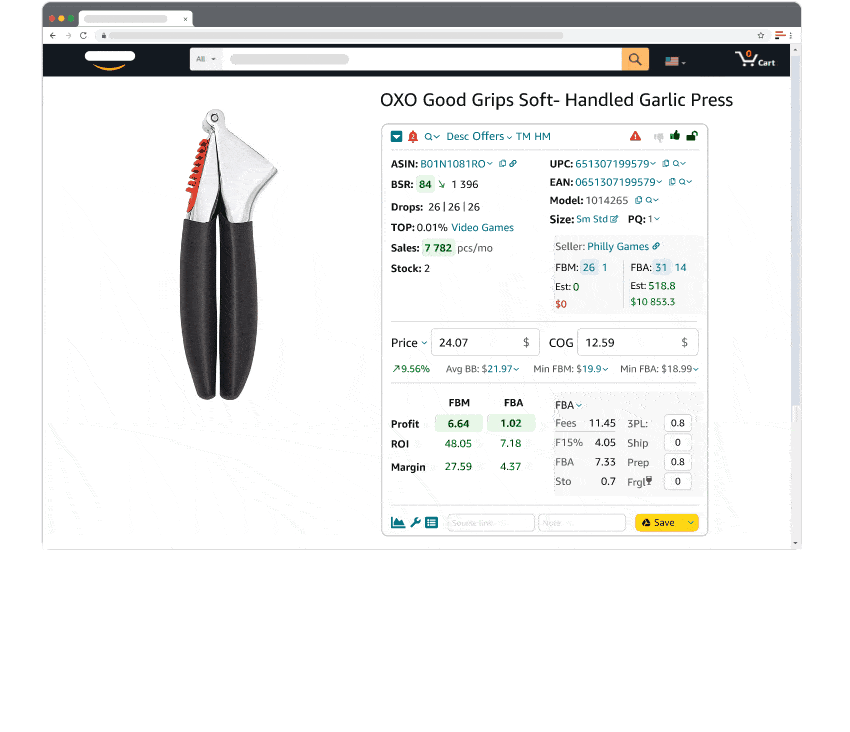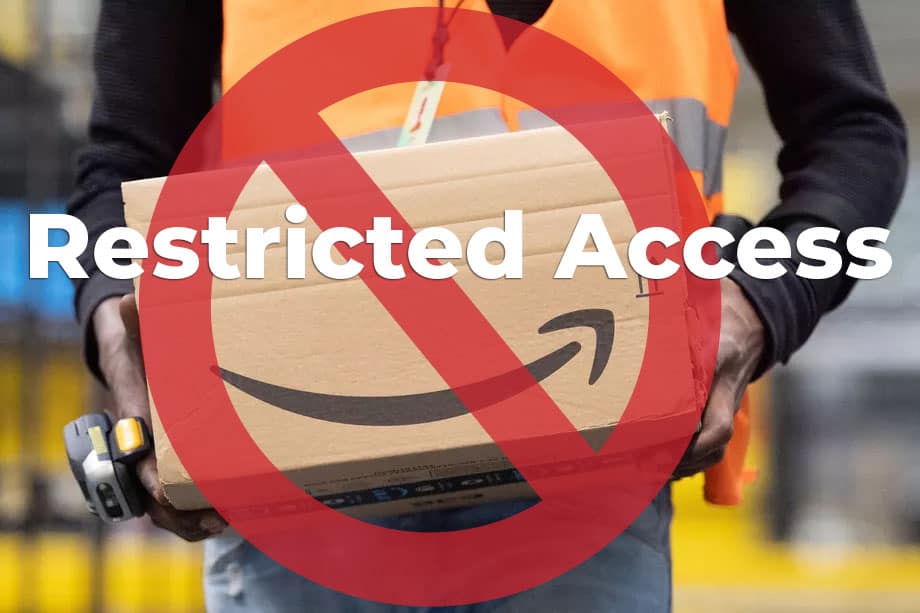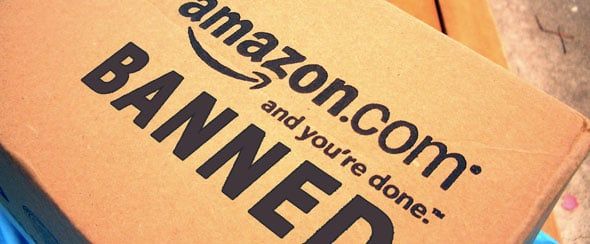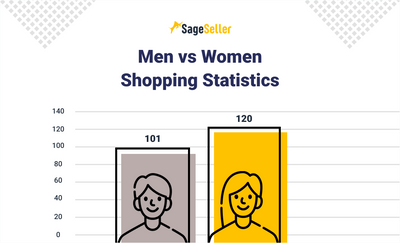Aloha, Amazon Seller!
What are restricted products Amazon? Check Amazon restricted products list, and how to get approval to sell restricted items on Amazon.
Amazon is known for having a variety of different regulations. The biggest marketplace on the globe sells thousands of millions of shoppers, declaring customer satisfaction as their primary goal. In practice, this means, that the shopper should get the product he was looking for, best quality, excellent service, and the product should raise no claims. The latter means, that the product should be safe to use and legally allowed in the market where it’s sold.
In other words, you can’t sell just anything you want on Amazon. They have a sales policy as to what products and brands you can sell, what you can’t sell, or you need the approval to sell. These regulations apply to so-called ‘restricted (ungated) Amazon categories’, or ‘restricted products Amazon’ (which makes a difference). In some cases, restrictions imply extra commissions.
The worst thing you can run into is the situation when you researched a perfect product, found a great supplier, formulated a price strategy, SEO, even calculated all Amazon fees, and afterward, you find out you cannot sell it. Therefore, it’s good to know the Amazon product restrictions in advance, because if the product is forbidden, Amazon will not allow you to sell it as it is. However, restricted does not always mean totally forbidden, and oftentimes, you can get permission from Amazon to sell restricted items on Amazon or get an Amazon restricted categories approval.
What Are Amazon Restrictions?
Amazon FBA restrictions mean that sellers need to get approval before they can sell products in certain categories. The restrictions vary depending on the marketplace and national laws, the lists of restricted categories and products differ, for instance, in the US and in the UK.
The marketplace distinguishes between restricted categories on Amazon and Amazon-restricted products.
Tip. To quickly and effectively source profitable products, merchants use product research tools. Seller Assistant Аpp is one such tool that can reliably help you with this task. This all-in-one extension incorporates all features vital for product research. Seller Assistant App shows you the product’s profit, margin, and ROI. It also helps you immediately see if a product has any sales restrictions or has triggered problems with account health in the past. It combines an FBM&FBA profit calculator, Quick View, Stock Checker, and Restrictions Checker in one tool.

Restricted Categories on Amazon
The list of restricted categories in the United States is as follows:
- Holiday Selling Requirements in Toys & Games
- Amazon Watch Warranty FAQs
- Made in Italy
- Video, DVD, & Blu-ray
- Collectible Coins
- Streaming Media Players
- Personal Safety and Household products
- Grocery & Gourmet Foods
- Music Category
- Lighting Category
- Beauty Topical
- Sports & Nutrition
- Watches
- Gardening & Watering
- Automotive
- OTC Medication
- Haircare & Beauty Appliances
- Baby Topicals
- Toys
- Pet supplies
- Medical supplies & Equipment
- Pet Care
- Pet Food
- Candles & Aroma Therapy
- Power Tools
- Home Environment Electronics
- Wireless Accessories
- Baby Feeding
- Feminine Hygiene
- Baby Activity Gear
- Baby Strollers and Carriers
- Audio Visual
- Personal Safety & Household

Amazon Restricted Products List
On top of the restricted categories, there are FBA product restrictions.
The list of restricted products in the US is as follows:
- Alcohol
- Animals & Animal-Related Products
- Art – Fine Art
- Art – Home Decor
- Automotive and Powersports
- Composite Wood Products
- Cosmetics & Skin/Hair Care
- COVID-19 Supplies
- Currency, Coins, Cash Equivalents, and Gift Cards
- Dietary Supplements
- Drugs & drug paraphernalia
- Electronics
- Explosives, Weapons, and Related Items
- Export Controls
- Food & Beverage
- Gambling & Lottery
- Hazardous and Dangerous Items
- Human Parts & Burial Artifacts
- Jewelry & Precious Gems
- Laser products
- Lighting
- Lock Picking & Theft Devices
- Medical devices and accessories
- Offensive and Controversial Materials
- Pesticides and Pesticide Devices
- Plant and Seed Products
- Postage Meters & Stamps
- Recalled Products
- Recycling electronics
- Subscriptions and Periodicals
- Surveillance Equipment
- Tobacco & Tobacco-Related Products
- Warranties, Service Plans, Contracts, and Guarantees
- Other Restricted Products
- Refrigerants: Ozone-Depleting Substances and Substitutes
- Upholstered Furniture, Bedding, & Other Quilted Products
- CPAP Cleaning and Disinfecting Devices.
These lists are updated on the regular basis, therefore you need to check them at your Seller Central before introducing a new product in a new category.
Amazon FBA Restricted Brands
Amazon also restricts the use of brands, so if you’re going to sell a product from a well-known brand, make sure that you have approval from Amazon.
Brand restrictions are Adidas, Nike, Gucci, etc.
Product Condition Restrictions
Amazon has restrictions on certain product conditions in several categories.
The list of the categories restricted for used items sales are as follows:
- Baby Products
- Beauty, Clothing, Accessories & Luggage
- Grocery & Gourmet Food
- Health & Personal Care
- Jewelry Shoes, Handbags & Sunglasses
- Watches
What Happens If You Fail to Comply with Restrictions?
Amazon is very serious about TOS and other regulations' non-compliance. If you violate the restrictions, Amazon may:
- Cancel your listings;
- Limit your listing privileges;
- Suspend your account;
- Ban your account.
If you’re unlucky and this happens, see our guide as to how to reinstate your account.
However, to be on the safe side, it’s better to comply with Amazon’s rules and regulations, because reinstating your account is not an easy process.

What if You Want to Sell In Restricted Categories?
Though getting approval to sell in Amazon restricted categories require additional effort, and may involve additional fees, in restricted categories, there is much less competition than in Amazon open categories. Selling in such categories can be your lucky chance if you get approval from Amazon.
How to Apply for Restricted Amazon Categories Approval?
- #1. Log in to your Amazon Seller Central account;
- #2. Navigate to Inventory;
- #3. Select ‘Add a Product’;
- #4. Search for your product;
- #5. If it returns as restricted, click ‘Listing Limitations Apply’;
- #6. Click the ‘Request Approval’ button.
If you receive immediate approval, that’s your luck.
Additional Criteria for Restricted Categories Approval Can Include:
- An order defect rate of below 1%;
- Pro-seller plan;
- An account in good standing;
- At least 3 months of sales history;
- Invoices.







